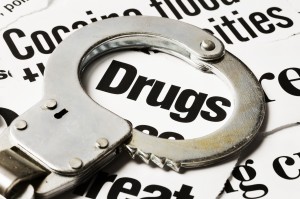“Nothing About Us Without Us!” – Moving Away From Criminalisation Of Addiction

It has been impossible, today, to ignore the important findings of a recent Home Office report, which compared the UK’s approach to drug misuse with that of 13 other countries and concluded that there is no evidence that the criminalisation of drug use leads to a reduction in the problem. See, for example, http://www.bbc.co.uk/news/uk-29824764.
In simple terms, there is no evidence that punishing people for having a drug problem will actually stop them using. Those of us who work in this field have a responsibility to those who suffer from addiction, and their loved ones and our communities, to focus the debate on what does work.
Awareness, understanding, tackling the grass roots of addiction in our homes, schools and towns must not be derailed, and works, but, as we all know, so does treatment.
Treatment for Mental Health problems does work; it changes lives, it transforms families, reduces crime, is cost-effective and, importantly, it’s the right thing to provide.
Addiction is a mental illness. Someone with an addiction, very crucially, does not choose to use. It has gone beyond willpower and become the only way to survive. If we criminalised gravity, would people stop falling down?
We don’t criminalise people with other mental illnesses. In fact, we have specific legislation that forces people to accept medical and psychological treatment when they are unwell. Psychotic disorders are an obvious example.
The Mental Health Act recognised Addiction as a Mental Illness yet, significantly, excluded it within the same legislation, from measures that would force people to accept treatment.
Why? Our enquiries team are reached out to, every day, by families desperately enquiring about how their loved ones can be somehow forced to accept the treatment they know they need, and which works. Their husband, mother or son, who is being destroyed before their eyes by something outside of their control.
It breaks our heart to say there is not a simple answer. You have to wait until things get worse. How many people has that particular approach killed?
Is it time to rethink the question of learning, not only from how addiction is treated in other countries, but how other Mental Illnesses are successfully treated here in the UK?
You are perhaps reading this article because you have been affected by addiction. “Nothing About Us Without Us!” ( “Nihil de nobis, sine nobis”) is a slogan used to communicate the idea that no policy should be decided by any representative without the full and direct participation of members the group(s) affected by that policy.
You are affected by this policy. You didn’t ask to be, just as addicts never dreamed their life would unravel as it does. You need to be heard. We want, and need, your views on this and all matters we will now be writing about, and asking you about.
Do you still believe that Addiction is a crime? We are not, for a moment, saying that people who have this mental illness should be free to use with impunity any more than people in the extremes of other mental illness like psychosis, but where there are active interventions but ones that are health directed, not punitive.
Is it time to consider legislation that can force people to engage in treatment? If that legislation were in place, would it have affected your own stories?
Jef Mullins, PROMIS Clinics
